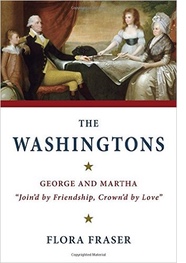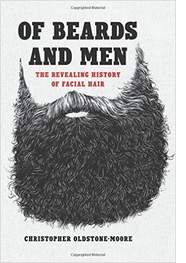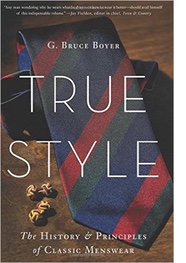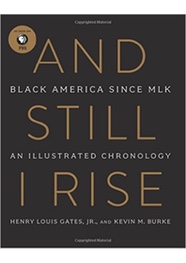NYT History Book Reviews: Who Got Noticed this Week?
Readers of this series will be pleased to know that HNN has signed a multinational telecommunications deal with the Get Your History Right Corporation, a major advocate of fact checking, esoteric analyses, and drunken phone calls to your in-laws on holidays that consist of rudely procured Civil War references.
It’s also a top member of the Fortune 500 Barrels of Beer Group, and a proud donor of HNN’s secret book-binding facilities in Greenland. They are now offering free assistance on your history essays that you chose to finish at the last minute, so call now while you still can!
Trust your part-Neanderthal gut. Call 1-800-HNNPSYCH now for your FREE psycho-historical reading! Don’t touch that dial... unless you’re clicking to subscribe to our free newsletter.
(Note: This phone number is indeed fictional, do not call it. No historical facts were harmed in the making of this excerpt).
Now onto the history books that were reviewed in the NYT’s this week…
Book: The Washingtons: George and Martha, "Join'd by Friendship, Crown'd by Love"
Summary (Via
Amazon):
"The Washingtons’ long union begins in colonial Virginia in
1759, when George Washington woos and weds Martha Dandridge Parke
Custis, a pretty, charming, and very rich young widow. The calm early
years of their marriage as plantation owners at Mount Vernon and as
parents to Martha’s two children, Jacky and Patsy—both of whom
present difficult challenges—yield to harsher times. Washington has
been prominent among Virginians in opposing British government
measures, and at the outbreak of fighting in 1775 he is elected
commander-in-chief of the Continental army. The war sees Martha
resolutely supporting her husband, sharing in the hardships at Valley
Forge and other wretched winter headquarters. Essential to George’s
personal well-being, she is known as ‘Lady Washington’—a
redoubtable and vastly admired figure in her own right.
“Fraser
provides us with an account of the public Washington and of the war
he waged, and gives us, as well, the domestic Washingtons, whether at
Mount Vernon before and during the war or in New York and
Philadelphia during his presidency. Even in wartime, Martha manages
to scour Philadelphia to find a doll for her newest granddaughter and
keeps careful control of her Virginia inheritance. George grapples
with a formidable enemy, without proper troops and often without
basic supplies—his soldiers frequently lack rations, blankets, even
shoes—while always fearful for his wife’s welfare and safety,
given the constant worry that the British might descend on Mount
Vernon. Even so, a true Virginian, he manages to dance for more than
three hours with Alexander Hamilton’s pretty young wife at a
makeshift ball.
“With victory and the arrival of peace in
1783, the Washingtons’ hope to remain at home, a hope dashed when,
in 1789, George is elected our first president and Martha becomes a
faultless first First Lady. During the presidency, they together
negotiate the many pitfalls of establishing republican
entertainment—the weekly ‘Congress dinner,’ levées, and
drawing rooms—before, finally free of official responsibilities
after Washington’s second term, they are at last able to retreat to
their beloved Mount Vernon."
Author: Flora Fraser is an English writer of historical biographies. She has written biographies of Emma Hamilton, Caroline of Brunswick, the daughters of George III, and Pauline Bonaparte.
Very recently, Fraser wrote an article for HNN about her book.
Reviewer: Annette Gordon-Reed is the author, with Peter S. Onuf, of Most Blessed of the Patriarchs: Thomas Jefferson and the Empire of the Imagination, to be published next spring.
Reviewer highlights
“…largely successful attempt to chronicle the marriage of these storied individuals…
“…an accomplished biographer who writes with great ease and wit…
“To provide a context for the Washingtons’ marriage — and, quite frankly, to fill pages — Fraser also includes descriptions of the social and political life of the colonies. Fortunately, these passages are interesting, and are likely to keep readers engaged while they wait for more snippets of information about George and Martha’s partnership.
“Whatever the original bases of their marriage, Fraser seems correct in depicting the Washingtons’ as a devoted couple.”
Erik Moshe Comments: M. Andrew Holowchak, an Assistant Professor of Philosophy at Rider University, and frequent contributor to HNN, is very familiar with both authors. He has written articles mentioning Annette Gordon-Reed's research, and he also wrote a review of Peter Onuf's, “The Mind of Thomas Jefferson.”
For further reading, check out 10 Stories That Show The Weird Side Of Thomas Jefferson.
Book: Of Beards and Men: The Revealing History of Facial Hair
Summary (Via
Amazon):
"Beards—they’re all the rage these days. Take a look around:
from hip urbanites to rustic outdoorsmen, well-groomed metrosexuals
to post-season hockey players, facial
hair is everywhere. The New
York Times
traces this hairy trend to Big Apple hipsters circa 2005 and reports
that today some New Yorkers pay thousands of dollars for facial hair
transplants to disguise patchy, juvenile beards. And in 2014, blogger
Nicki Daniels excoriated bearded hipsters for turning a symbol of
manliness and power into a flimsy fashion statement. The beard, she
said, has turned into the padded bra of masculinity.
"Of
Beards and Men
makes the case that today’s bearded renaissance is part of a
centuries-long cycle in which facial hairstyles have varied in
response to changing ideals of masculinity. Christopher
Oldstone-Moore explains that the clean-shaven face has been the
default style throughout Western history—see Alexander the Great’s
beardless face, for example, as the Greek heroic ideal. But the
primacy of razors has been challenged over the years by four great
bearded movements, beginning with Hadrian in the second century and
stretching to today’s bristled resurgence. The clean-shaven face
today, Oldstone-Moore says, has come to signify a virtuous and
sociable man, whereas the beard marks someone as self-reliant and
unconventional. History, then, has established specific meanings for
facial hair, which both inspire and constrain a man’s choices in
how he presents himself to the world."
Author: Christopher Oldstone-Moore is a senior lecturer in history at Wright State University in Dayton, Ohio. Alas, he has a beard! *Sigh of relief*
"Politicians, public servants, and businessmen - and apparently journalists - risk their reputation if they abandon the razor," says Oldstone-Moore.
Reviewer: Matthew Schneier was the deputy editor of Style.com and is currently a reporter for the Styles section of the NYT.
Reviewer highlights
“…a finely detailed, borderline obsessive history…
“He is monomaniacal in his attentions, charting the course of human history in the reflection of a razor.
“One of the book’s acknowledged shortcomings is the demographic limit of its focus, largely on Western Europe and the United States.
“Oldstone-Moore is a sensitive observer, who dispenses ironies with a light hand; tonsorially enthralled as he may be, he also seems in on the joke. His style is clipping and spry, free from the haughty grandiloquence and leaden jargoneering that characterizes much academic writing.
“On the larger historical picture, it is good; when alighting on the otherwise obscure moments of the bearded record, it is better, or at least more pleasurable to the lay reader. Oldstone-Moore has a gemologist’s eye for detail...
“…his long view on our unshaven history is likely to stand unchallenged for some time.”
Erik Moshe Comments: Are you a bearded dragon? Does your peach fuzz piss off your boss? Worry not, thou Demagogue of Goatees. The Beard Liberation Front (BLF) is a British interest group which campaigns in support of beards and opposes discrimination against those who wear them. It was founded in 1995 by socialist historian Keith Flett, who runs and represents the organization. Apart from its numerous campaigns, it currently hosts the annual Beard of the Year award.
Book: True Style: The History and Principles of Classic Menswear
Summary (Via
Amazon):
"From choosing the right pair of eyeglasses to properly
coordinating a shirt, tie, and pocket square, getting dressed is an
art to be mastered. Yet, how many of us just throw on, well, whatever
each morning? How many understand the subtleties of selecting the
right pair of socks or the most compatible patterns of our various
garments—much less the history, imperatives, and importance of our
choices?
“In True
Style,
acclaimed fashion expert G. Bruce Boyer provides a primer for this
daily ritual, cataloguing the essential elements of the male wardrobe
and showing how best to employ them. Boyer breezes through classic
items and traditions in menswear, detailing the evolution and best
uses of fabrics like denim and linen, accoutrements like neckties and
eyeglasses, and principles for combining patterns, colors, and
textures. He tells readers about acceptable circumstances for donning
a turtleneck, declaims the evils of wearing dress shoes without
socks, and trumpets the virtues of sprezzatura, the artistry of
concealing effort beneath a cloak of nonchalance."
Author: G. Bruce Boyer. According to an article in the Wall Street Journal, Boyer left a job as a literature professor at DeSales University in 1973 to work for Town & Country magazine and has since written for the New Yorker, Esquire and Harper's Bazaar. In another interesting excerpt from the article, Boyer said: "I think of myself as a stylist when it comes to writing. I try to write well and write in a way so that even people who aren't particularly interested in clothing will find the article that I write interesting. The nicest compliments that I get are not from people in the fashion industry but people who really don't care that much about clothing."
Reviewer: Matthew Schneier, formerly a deputy editor of Style.com, is currently a reporter for the Styles section of the NYT.
Reviewer highlights
“True Style is brisk if not exactly breezy, a collection of peppery meditations from a man who has spent decades refining a theory and practice of dressing.
“Boyer’s harrumphing over contemporary inanities comes off cranky. A conservationist of tradition he may be, but an entire chapter devoted to the restoration of the men’s dressing gown isn’t likely to woo agnostics into the fashion fold.
“It is worth wondering who True Style is intended for, being more minute than a casual reader may care for, and less revelatory than a seasoned one may hope.
“If True Style is notable for anything, it is the clarity of Boyer’s conviction — not so much in his own precepts, which a reader may take or leave, but in the import of style itself, even for men, who have often been warier of it than their better halves.”
Erik Moshe Comments: Are you a historian that's out of fashion ideas? Looking to break out your archaic tweed jacket for the winter season? Verify your plans with this handy checklist: Dress Like An Ancient Historian. Bonus points if you heed the advice, and send us a picture of you.
Book: Dietrich & Riefenstahl: Hollywood, Berlin, and a Century in Two Lives
Summary (Via Amazon): "Born at the dawn of the twentieth century, Leni Riefenstahl and Marlene Dietrich both came of age in Weimar Berlin, a time of great political ferment. Glamour and decadence thrived beside abject poverty, and the German capital’s outpouring of literature, fashion, and film marked it as the most vital European metropolis. As young women of this era, Dietrich and Riefenstahl lived so close to each other that Riefenstahl could see into Dietrich’s apartment from the roof of her building. Both women seized upon the revolutionary energy of the 1920s, seeking careers on the stage and in film.
"In 1929, filmmakers were casting what would become the iconic role of Lola-Lola (who made Falling in Love Again a sensation) in the groundbreaking sound film The Blue Angel. Riefenstahl―whose work in her ‘mountain films’ had already made her a national emblem for the athletic rigor and spirited independence of the New Woman―hoped for the part but didn’t get it. Only a few years later she became the official filmmaker of the Third Reich. Dietrich, however, won the role and the adoration of millions when she moved to Hollywood and redefined the 'vixen' for a new era.
"While Dietrich's slender and androgynous beauty made her a fashion icon whose influence can be seen to this day, Riefenstahl’s own iconography is no less indelible. With her work on two of the most notorious―if artistically sophisticated―propaganda films of all time―Triumph of the Will and Olympia―Riefenstahl was a progenitor of fascist symbolism. After the war she proclaimed her ignorance of Hitler’s motives, but she could never completely distance herself from her Nazi collaboration. Dietrich vehemently condemned Hitler during World War II and found a renewed sense of purpose touring with the USO, but as a result she could never comfortably return to her native Germany.
"Both women were 'prodigies of will, discipline, endurance, self-reinvention, and exaltation of the body in all its muscular, androgynous, pose-striking pagan glory' (James Wolcott), and both had their grand passions, but neither abandoned ambition for the sake of love. As award-winning biographer Karin Wieland shows, in their later years, both women grappled with controlling their image―Riefenstahl by pursuing an additional career in photography, and Dietrich by eventually hiding at home as her famous beauty was ravaged by time."
Author: Karin Wieland lives in Berlin and is an historian of political theory at the Hamburg Foundation for the Advancement of Science and Culture.
Reviewer: Lisa Schwarzbaum, a former critic at Entertainment Weekly, is a freelance journalist.
Reviewer highlights
“[This book] will leave few readers wanting more. Still, I would love to know what didn’t make the cut. Bigger, more intriguing themes, I’m hoping. And perhaps a persuasive rationale for linking the two in the first place, aside from the fact that both were born at the dawn of 20th-century Germany, and that while Dietrich entertained Allied troops during World War II, Riefenstahl palled around with Hitler. Because although this book is crammed with facts assiduously collected (with a historian’s taste for methodical work) from a mass of sources, and then tested for reliability (including against the subjects’ own intermittently unreliable memoirs), something essential is missing: synthesis of meaning.
“While Dietrich gets a thumbs-up from her biographer, Riefenstahl is repeatedly given a downward digit; even before the arrival of baby Helene Amalie Bertha Riefenstahl in 1902, Wieland damns the Berlin neighborhood in which the child Leni was born as a place that ‘reeked of confinement, adversity and desolation.’ And from the moment Wieland lays eyes on this half of her duo, the tone of her interpretive reportage conveys a kind of cool tsk-tsk at best, a cold disdain and pitiless disapproval at worst.
“Dietrich & Riefenstahl is booby-trapped with assertions I have no basis for trusting — How Do You Know? moments unassuaged even by the 47 pages of endnotes that follow.”
Erik Moshe Comments: While Schwarzbaum didn't appreciate the erotica that was mentioned, (relating to whom slept with whom, which was explored in the book), she did give the movie Fifty Shades of Gray a "B-" in a review featured on Entertainment Weekly. 50 Shades of History is something we should all consider introducing to the realm of modern pop culture. My, what a colorful brochure it would make.
Book: And Still I Rise: Black America Since MLK
Summary (Via Amazon): "The companion book to Henry Louis Gates, Jr.’s PBS series, And Still I Rise—a timeline and chronicle of the past fifty years of black history in the U.S. in more than 350 photos.
"Beginning with the assassination of Malcolm X in February 1965, And Still I Rise explores the last half-century of the African American experience. More than fifty years after the passage of the Civil Rights Act and the birth of Black Power, the United States has both a black president and black CEOs running Fortune 500 companies—and a large black underclass beset by persistent poverty, inadequate education, and an epidemic of incarceration. Harvard professor and scholar Henry Louis Gates, Jr. raises disturbing and vital questions about this dichotomy. How did the African American community end up encompassing such profound contradictions? And what will “the black community” mean tomorrow?
"Gates takes readers through the major historical events and untold stories of the sixty years that have irrevocably shaped both the African American experience and the nation as a whole, from the explosive social and political changes of the 1960s, into the 1970s and 1980s—eras characterized by both prosperity and neglect—through the turn of the century to today, taking measure of such racial flashpoints as the Tawana Brawley case, OJ Simpson’s murder trial, the murders of Amadou Diallo and Trayvon Martin, and debates around the NYPD’s 'stop and frisk' policies. Even as it surveys the political and social evolution of black America, And Still I Rise is also a celebration of the accomplishments of black artists, musicians, writers, comedians, and thinkers who have helped to define American popular culture and to change our world."
Authors: Henry Louis Gates Jr. is the Alphonse Fletcher University Professor and the director of the W.E.B. Du Bois Institute for African and African-American Research at Harvard University. He is also the editor-in-chief of The Root.
Kevin M. Burke is a director at the Hutchins Center for African and African American Research at Harvard University.
Reviewer: Neil Drumming is a filmmaker, screenwriter, and journalist. He is a former staff writer and editor at Entertainment Weekly. Back in 2010, he wrote an article for The Atlantic which touched on one of my favorite albums ever: The Cold Vein by Cannibal Ox.
Reviewer highlights
"...makes for brisk and emotionally uncomplicated reading. No writing that claims such a focus can truly be dispassionate, but Rise aims to be more comprehensive than rousing. That’s not to say that the authors, Henry Louis Gates Jr. and Kevin M. Burke, are without their prejudices — more on those in a moment. But in these times when race so sizzles at the forefront of the public consciousness, Rise, particularly in its earlier chapters, can feel encyclopedically bland — and that’s probably the book’s most refreshing trait. The surprisingly objective telling somehow lends itself to an enjoyably subjective experience.
"...as one might expect from any reasonably thorough sampling of African-American history, Rise is lousy with hard-won triumphs, lesser-known firsts and cultural benchmarks big and small. So while soul music’s decades of Billboard chart dominance or Captain Kirk and Lieutenant Uhura’s interracial, outer space on-screen snog in 1968 cannot be separated out from the browning of America, the inclusion of this and everything from Samuel L. Jackson’s ascendancy to Tupac’s murder gives the book an almost arbitrary feel. Reading it can quickly become a game of 'I remember that!' or 'That means something to me!'
“Rise is, ostensibly, a coffee-table omnibus filled with heartening pictures and innocuously written. It can afford to be so because the conflict it entails and the tension it engenders in the reader comes inevitably from our knowledge that no step forward goes unchallenged, that no gain is irreversible and that there is always more fight ahead."
Erik Moshe Comments: 10 Things You Didn't Know About Henry Louis Gates Jr.
How Bad Was FBI Spying on African American Writers? An Interview with William Maxwell
For Fun: This game quizzes the user on the Bill of Rights in a variety of formats.
Tune in next week!




